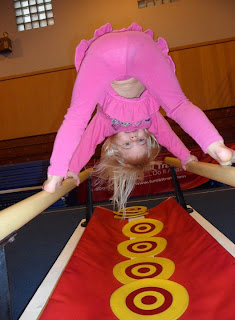 |
| I will do it alone, Mommy! |
After several years of teaching and as well as a few years as a parent I have acquired one belief that has stuck with me and has helped to form a philosophy of parenting. I do not EVER enable my child. In this sense, I NEVER take my child's (or students') abilities away from them.
You can think I am mean, but if you listen carefully how I give children power, you too might think differently about how you HELP your children (at ANY age!).
 |
| I am fearless! |
As a teacher we talk about how children learn within their ZONE of proximal development.
Let's take a little bird walk with this one, and I will share an AH-HA moment with you:
One of my greatest prides and joys is in my life was "the conversion" of my hubby from a self centered (OK he still is a little of that too, but...), "I only want to work a job where I can be alone in my solitude" arborist, to a well loved, talented MIDDLE SCHOOL (no doubt!) Science teacher! HA!
It might have been my well known, contagious energy for teaching and kids, that did, or it might have been a little of the 9 month work year jealousy (man was he ever wrong about that one!!), but at one point he decided to "become a teacher too!" It started with a few hours a week of volunteering, to branching out to help my colleagues, then to becoming an occasional sub, and finally to enrolling in a credential program, that did it!
It was during one of these Theory or philosophy classes that he came home to tell me about his "AH-HA!" His class was talking about the Zone of Proximal Development. Life and education all of a sudden made sense to him. The concept of children tuning our learning (or filtering information) when it is too easy or too hard for them was foreign to him. BUT IT MADE SENSE!
As parents, we know that we don't want to make things too hard for our child, for fear of them rejecting the objective, but too easy is just as detrimental to their learning and their psyche! As adults we all know about this, we do not want a job that is "beneath" our abilities, and we really do enjoy a challenge that we know that we can carry out.
How often do we do this to our children? I cannot help but think, as a teacher HOW OFTEN students are let down when the bars a lowered for them. What would have happened if I had picked up my daughter and carried her over to the bar and placed each hand on the bar, and then going that extra step, I swung HER legs up to the bar to help her hang upside down? She would not learn how to stretch her self to meet her actually abilities, and she would not get any stronger. Parents and teachers do this to children ALL THE TIME! : ( It makes me very sad and frustrated. Are you telling your kids, "it is OK, you can't do it, so I will help you."?
It has been my motto for children in my life, to say, you need to stretch or you will never grow. Encouraging children to challenge themselves and for their caregivers to challenge THEM, they will INDEED grow.
Do you have a toddler in your care? Here are some great examples of ways that you can include, teach and ask YOUR children to grow!
- Teach your child how to help themselves with daily tasks
- teach them how to drag a chair or stool to the sink to wash their own hands after using the bathroom
- have a special place where you store plastic cups and bowls (BPA-free of course!) so that they can get their own sip of water, or bring you bowl when they want a snack of cheerios
- make these plastics their responsibility while unloading dishes (my daughter has been helping with her plastics since she was about 15 months old
- Give your child many opportunities to try something new
- if you sign your child up for a new class or offer a new task, positively encourage them to keep trying and the routine itself will be a learning experience.
- stop a task before it gets too repetitive or before they get tired of it
- do not create a situation that you cannot easily assist with (too difficult)
- do not act as a scapegoat if your child is not in harm's way
- give them a helping inch not a mile!
- create routines that are age appropriate (my daughter is expected to clean up toys as she completes playing each one of them, she knows that all her art supplies go back in their storage unit, with a drawer for crayons, one for markers, one for paper, etc.)
Give your child POWER and do not take their ability to grow and achieve away from them.
Do you have some ideas how you give your children the POWER to learn and grow?

